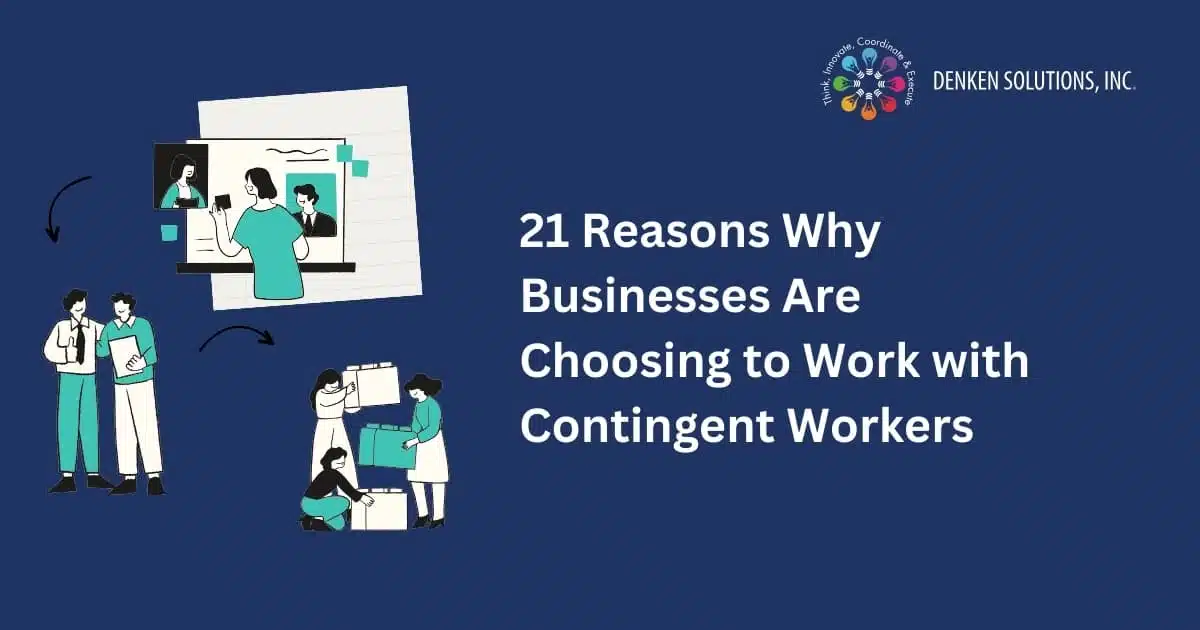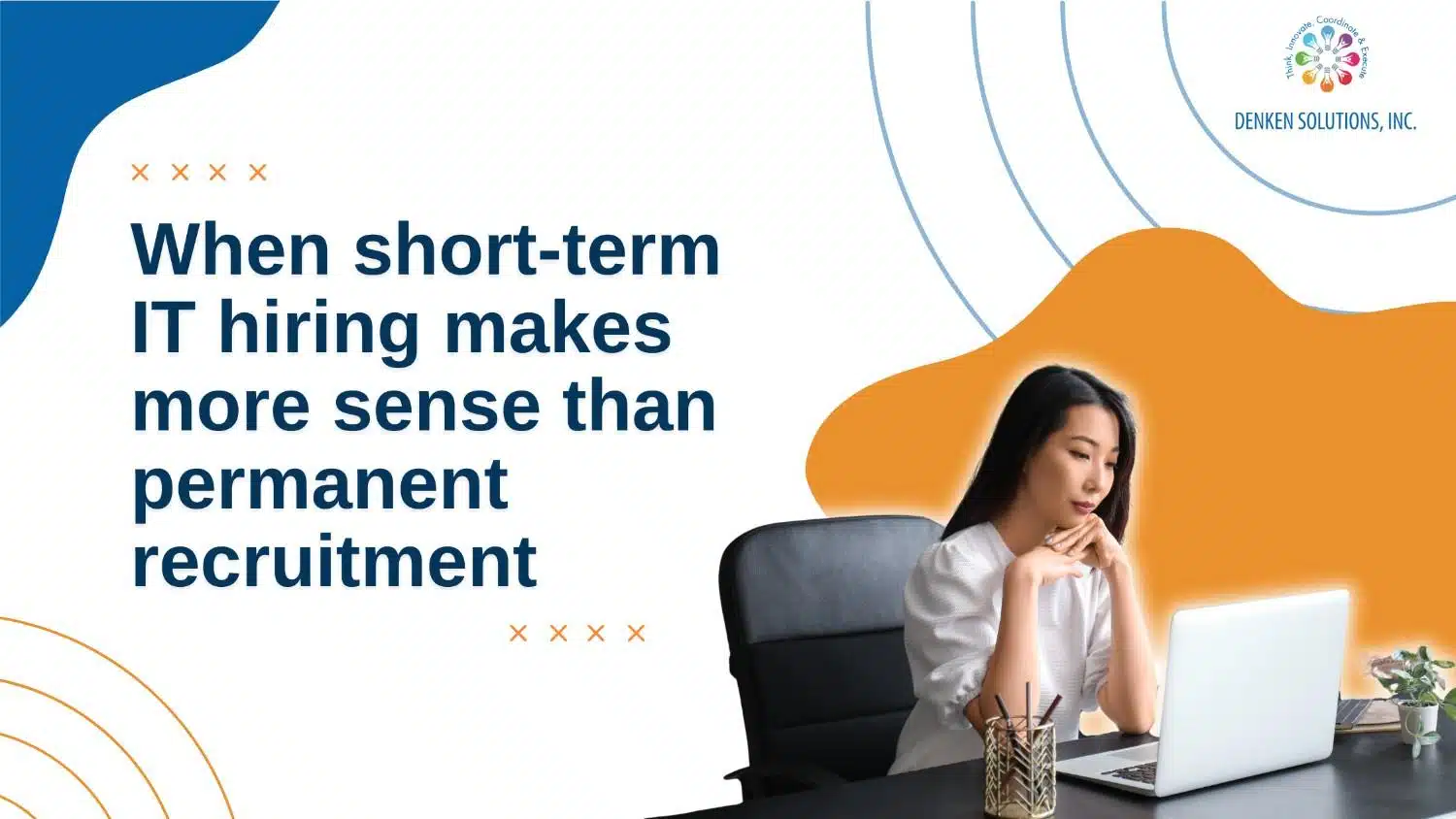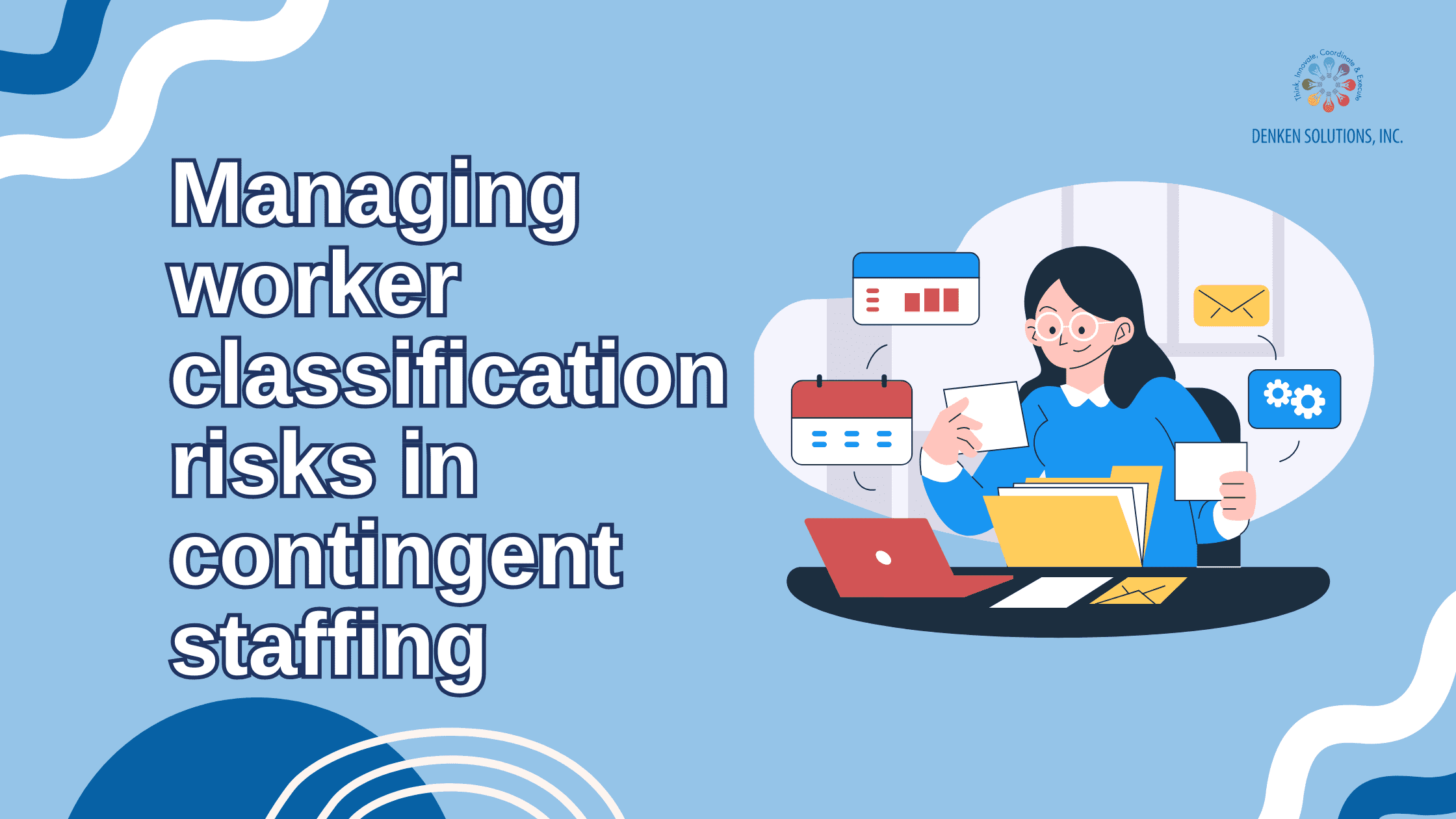Overview
The ongoing transformations in the business world and the shift in the market landscape due to emerging digital tools have somewhat broken the traditional notions of employment. The dominance of the gig economy ever since the pandemic has now provided companies with the strategic choice of utilizing contingent workers for their business or project needs.
The article brings forth a wide range of reasons why businesses are switching to a contingent workforce model to gain a competitive edge amidst the dynamic market conditions.
The top reasons why contingent workers are beneficial for your businesses
- Better fulfillment of workload needs
Contrary to fixed or full-time hires, contingent workers can be efficiently hired during hours of need without guaranteeing them long-term commitment. Be it a project with a short timeframe or an increase in workload resulting from seasonal highs, companies can conveniently scale up their workforce with contingent staff and release them once their needs or goals are fulfilled.
-
Enhanced flexibility and adaptability
The emergence of the latest technologies and economic uncertainties require companies to alter and adjust their staffing levels based on market circumstances. The easy scalability of a contingent workforce allows companies to remain flexible during unforeseen market conditions and easily adapt to trending technologies and tools.
-
Decrease in overhead costs
Contingent workers do not need office spaces as they usually work remotely from various geographical locations, allowing companies to preserve a good deal of overhead costs. Besides that, contingent staff mostly do not receive a wide range of employee benefits and perks obtained by permanent staff. This helps companies to cut off benefits costs.
-
Better financial predictability
With enhanced flexibility and scalability of the contingent workforce, companies are able to secure budgets for their projects and get rid of heavy costs associated with full-time staff. Hiring experienced contingent workers also cuts off training costs as they already possess the skills, competencies, and knowledge needed to suit the project or business needs.
-
Access to niche expertise
Contingent workers with industry-specific skills and expertise can assist companies in shaping competitive strategies to thrive in the existing business scenario. The speedy acquisition of specialized talents enables companies to bridge the skill and knowledge gaps in their existing workforce.
-
Enrichment of workforce with the right skill set
The diversity and versatility of skills in the contingent workforce enrich teams with unique perspectives and ideas, thereby channeling the paths for innovation. By hiring technically proficient contingent workers, companies can seamlessly execute projects demanding technical genius.
-
Streamlined hiring process
One of the best means of hiring contingent workers is through reputable staffing agencies, who possess a wide pool of talented and competent candidates in their databases. Staffing agencies follow a streamlined and cost-efficient hiring process undertaking the entire responsibility of screening, sourcing, onboarding, and training of contingent staff, enabling employers to focus on other major operational areas.
-
Trials for full-time roles
By engaging contingent workers, companies get adequate time to assess their capabilities and competencies and decide whether they can fit in full-time positions. The trial period further enables employers to determine if the workers can fit into their company culture.
-
Quicker response to market trends
As stated before, the involvement of contingent workers allows employers to remain flexible and scale their operations based on market needs. In other words, contingent staff offers a strategic advantage to businesses at hours when they need skilled and competent workers the most.
-
Elevated business agility
The flexibility infused into business operations with the engagement of a contingent workforce helps streamline decision-making processes, enabling companies to remain agile and competitive no matter the external market situation.
-
Establishment of an inclusive workplace culture
The ease and convenience of hiring contingent workers give an opportunity to companies to include individuals from diverse cultural backgrounds, thereby enabling to foster a global perspective and inclusivity in the workplace.
-
Collaboration with cross-cultural teams
The creation of a blended workforce with diverse contingent workers and full-time hires, enables companies to incorporate distinguished ideas and perspectives into businesses, thus fostering cross-cultural collaboration in teams. This elevates the company dynamics, paving the path for change and innovation.
-
Flexible work norms
With a contingent workforce, employers design and implement flexible work arrangements that contribute to improved work-life balance for the workers. Unlike full-time employees, contingent workers are not bound to follow rigid work schedules and can set their own schedules.
-
Improved productivity levels
With the desired flexibility and control of work schedules, contingent workers enjoy a healthier work environment when compared to fixed, full-time workers. Working from remote locations further allows them to decide the place from where they want to work. The tailored work schedules and locations have a positive impact on their mental health and well-being, thereby boosting their productivity levels.
-
Continuous learning opportunities
The cross-pollination of skills resulting from an integrated workforce helps companies to establish a culture of knowledge exchange, giving employees continuous learning and development opportunities.
-
Adherence to sustainable work practices
The entire hiring process of contingent workers can be done virtually, from interviewing candidates to onboarding them. In addition to that, contingent workers can work remotely which helps in eliminating the carbon footprint associated with their commuting.
-
Promotion of corporate social responsibility
By offering contingent work opportunities to capable candidates belonging to local communities, employers can help them gain economic independence, thereby nurturing a sense of corporate social responsibility.
-
Alignment with contemporary work trends
The evolution of remote work policies channeled by the COVID-19 pandemic has redefined the employment market, bringing a new dimension to workforce trends. Hence, by engaging contingent workers, employers can keep up with the emerging workforce trends.
-
Better change management
If the existing employees of a company are not confident with their skills and abilities to support a change or innovation, they may try to protect themselves by resisting the change. In such cases, it is best to involve external temporary workers with the required skills and competencies to manage the change or innovation.
-
Better anticipation of upcoming business or workforce challenges
Businesses can better address emerging technological changes and disruptions by embracing the power of a contingent workforce due to its flexibility and adaptability. Flexible work arrangements further allow employers to anticipate the changing preferences and needs of contemporary workers.
-
Elimination of HR-related risks
The employment relationship between employers and contingent workers is clearly defined by terms of the contract, which assist in reducing legal liabilities. Moreover, the non-permanent and short-term nature of contingent work reduces the chances of HR-related employee conflicts which occur in prolonged or long-term employment.
Why is Denken Solutions the best platform for hiring contingent workers?
Operating in the contingent workforce industry for a long time, Denken Solutions has established itself as a reliable contingent staffing agency with access to a broad pool of talented professionals who can be the right fit for your business or project needs. We not only rely on our existing databases but also undertake a proactive approach to connect with fresh talents and search for ideal candidates for our clients. With a commitment to excellence, we follow a precise, time-efficient, and cost-efficient hiring process, taking up the entire responsibility of screening, shortlisting, and onboarding candidates on behalf of our clients. With an extensive knowledge of legal and regulatory requirements for employees across the globe, we ensure that our clients perfectly adhere to contingent workforce compliance.
Conclusion
It can be concluded that the strategic management of contingent workers can prove to be highly advantageous for modern-day employers. Besides offering flexibility, scalability, and agility to companies, a contingent workforce brings forth a whole new dimension to the business market. If you want to engage contingent workers in your business operations and enjoy the myriad of benefits discussed above, partner with Denken Solutions!



